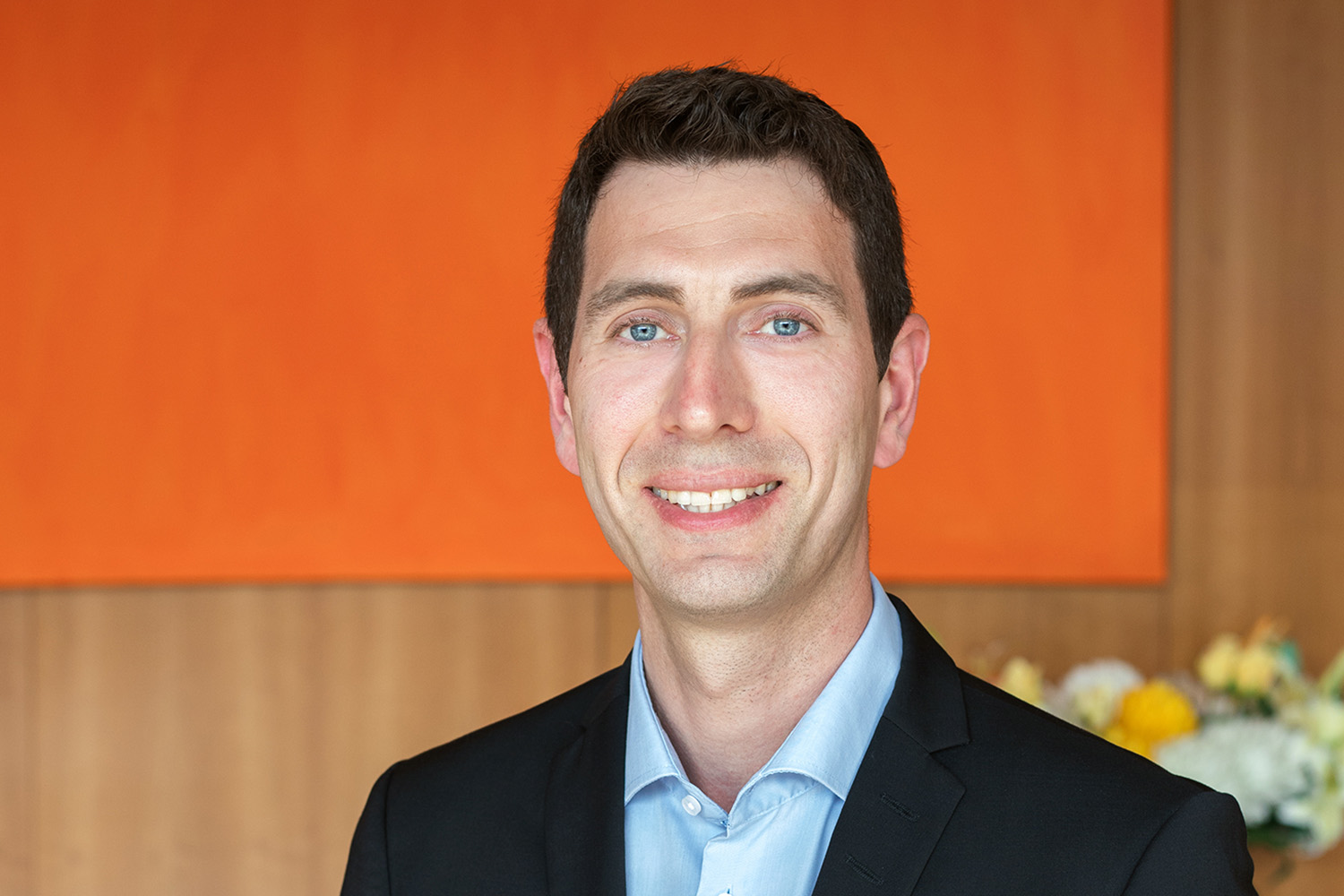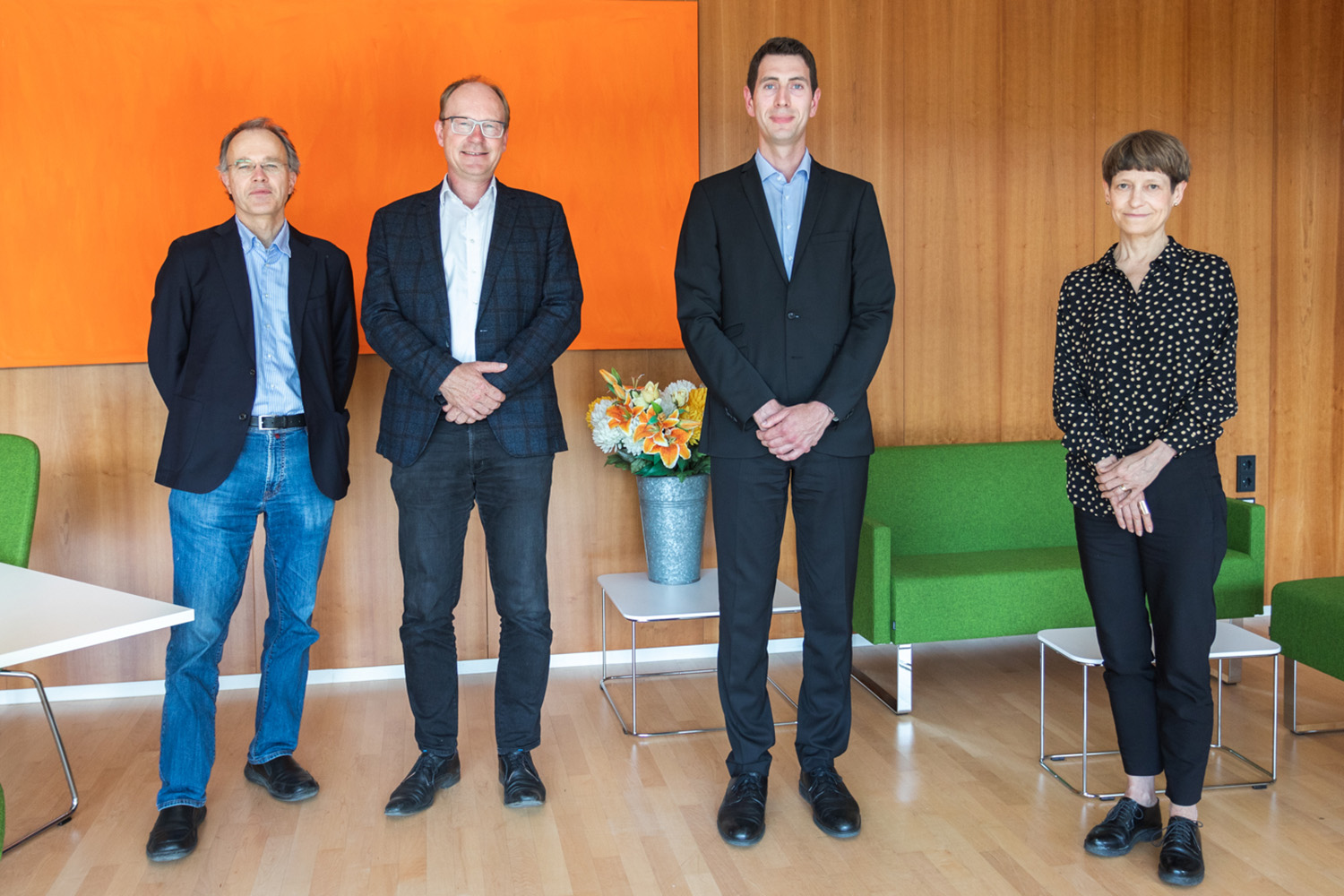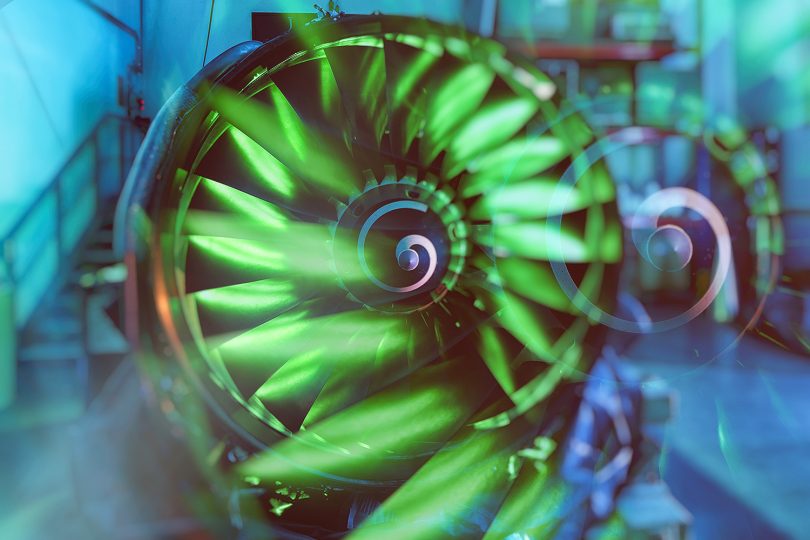Advancing the energy transition with vehicle electrification! Questions to Professor Michael Terörde
Professor Michael Terörde is establishing the new Chair for Mobile Electric Energy Systems at the Institute of Electromagnetic Compatibility since 1 August 2022. The focus here is on the development of new concepts for vehicle electrical systems in order to achieve a reduction in pollutant emissions in the mobility sector.
Professor Terörde, have you arrived well at TU Braunschweig?

Professor Michael Terörde, Chair of Mobile Electric Energy Systems at the Institute of Electromagnetic Compatibility. Photo credit: Max Fuhrmann/TU Braunschweig
In August 2022, I was warmly welcomed by the faculty. Even before I took up my post, I was able to get to know some colleagues, as they took me into consideration for the preparation of a research proposal. In addition, I was already integrated into existing lecture modules and was thus able to establish initial contacts with students. Since the professorship for Mobile Electric Energy Systems is completely new, I don’t have my own staff or labs yet. However, the colleagues in the related institutes give me access to both, which makes it much easier for me to get started. I have therefore arrived here well and am grateful for the support.
Why did you choose TU Braunschweig?
My doctoral supervisor and a former research colleague had pointed me to the Cluster of Excellence Sustainable and Energy-Efficient Aviation (SE2A) and to the call for applications for the new professorship in Mobile Electric Energy Systems and encouraged me to apply. The opportunity to build up a chair from scratch is a great challenge and at the same time the chance to shape a lot myself. I simply had to take advantage of such an opportunity for self-realisation.
As an engineer, TU Braunschweig naturally has a special attraction for me due to the many renowned institutes in the field of energy technology and the excellent equipment. Another plus point was the move from Berlin to Braunschweig, which brought me closer to home, as I originally come from Lower Saxony, namely Friesland.
What exactly do you deal with in your research?
The energy transition also includes the transport transition, which aims to make the mobility sector more environmentally friendly. An important point here is electrification. This is where my research comes in and focuses on electrical systems for different types of vehicles such as aircraft, ships, satellites and automobiles.
Due to my previous scientific experience with aircraft electrical systems and the participation in the Cluster of Excellence SE2A planned for 2023, the first research focus will be on optimisation possibilities for the electrical energy supply of future aircraft. The reduction of pollutant emissions is to be achieved through the use of batteries, fuel cells, superconducting systems and/or sustainable aviation fuel, for example. There is still a great deal of research to be done in this area, especially on how the new components can be integrated into the electrical system and how they can lead to savings when viewed as a whole.

TU President Professor Angela Ittel with Professor Michael Terörde (2nd f.r.), Professor Achim Enders (Institute for Electromagnetic Compatibility, l.), Professor Markus Henke (Dean of the Faculty of Electrical Engineering, Information Technology, Physics, 2nd f.l.). Photo credit: Max Fuhrmann/TU Braunschweig
What made you decide to do research in this area?
Even before my studies, I had an inclination towards electrical engineering. In my first degree programme in industrial engineering, I then discovered energy technology for myself. Renewable energies were still quite uncommon at that time, but they fascinated me. That’s why I completed an additional Master’s degree in the field of regenerative energy systems.
I completed my technical internships at the aircraft manufacturer Airbus and later carried out many research projects together with Airbus as a scientific employee. In addition, as a technical officer in a squadron, I was responsible for the technical readiness of Bundeswehr aircraft.
The new professorship allows me to link the topics of energy technology, mobility and aircraft and thus contribute to the energy transition.
What were the most formative experiences in your scientific career?
During my studies, I had the great opportunity to spend several months at McGill University in Montreal, Canada, and to write my thesis at Dartmouth College in New Hampshire in the field of energy technology. Research at foreign universities, experiencing other cultures and finding my way in other countries had a lasting positive impact on me. Even now, I still benefit from the contacts I made back then, which have also resulted in friendships. TU Braunschweig would like to promote internationalisation. As I have experienced being a foreign language student at a university without prior knowledge of the cultural subtleties, I can put myself in the shoes of foreign students at TU Braunschweig and would like to make my contribution by providing targeted assistance, e.g. as a mentor, by establishing international cooperation with foreign universities and by offering English-language modules.
What constitutes good teaching for you?
In contrast to what I have often experienced myself, the classic 90-minute lecture, in which students often only have the role of asking questions, is becoming a discontinued model. Important for me are the attempts to actively promote student participation. I still have to try it out myself and plan to make my lectures stimulating with quizzes, group work and interactive participation. I find approaches like the portfolio method interesting, where students write a reflection after each learning event and work on case studies in teams. This is intended to achieve continuous learning and eliminate bulimic learning before the exam period. TU Braunschweig promotes trying out new teaching methods through the Team Teaching and Media Education department, whose seminars and workshops I have already taken advantage of.
What would you like to give students to take with them?
The field of energy engineering is considered a difficult subject to study, but the current situation surrounding climate change, the energy transition and the associated demand for an energy-efficient power supply leads to a high demand for appropriately trained engineers. There is still a lot to be done here, and the question of why research is being done in this field hardly arises, because everyone knows about the social relevance.
As a young professional, it is desirable to bring not only specialised knowledge, but also project experience and a certain strength of character. For this reason, students should take advantage of opportunities to work for institutes as research assistants and, if possible, spend some time abroad, be it in the context of semesters abroad, internships or when writing their final thesis at a foreign university. My tip: Simply ask the teaching staff whether they would offer and support such an opportunity.

